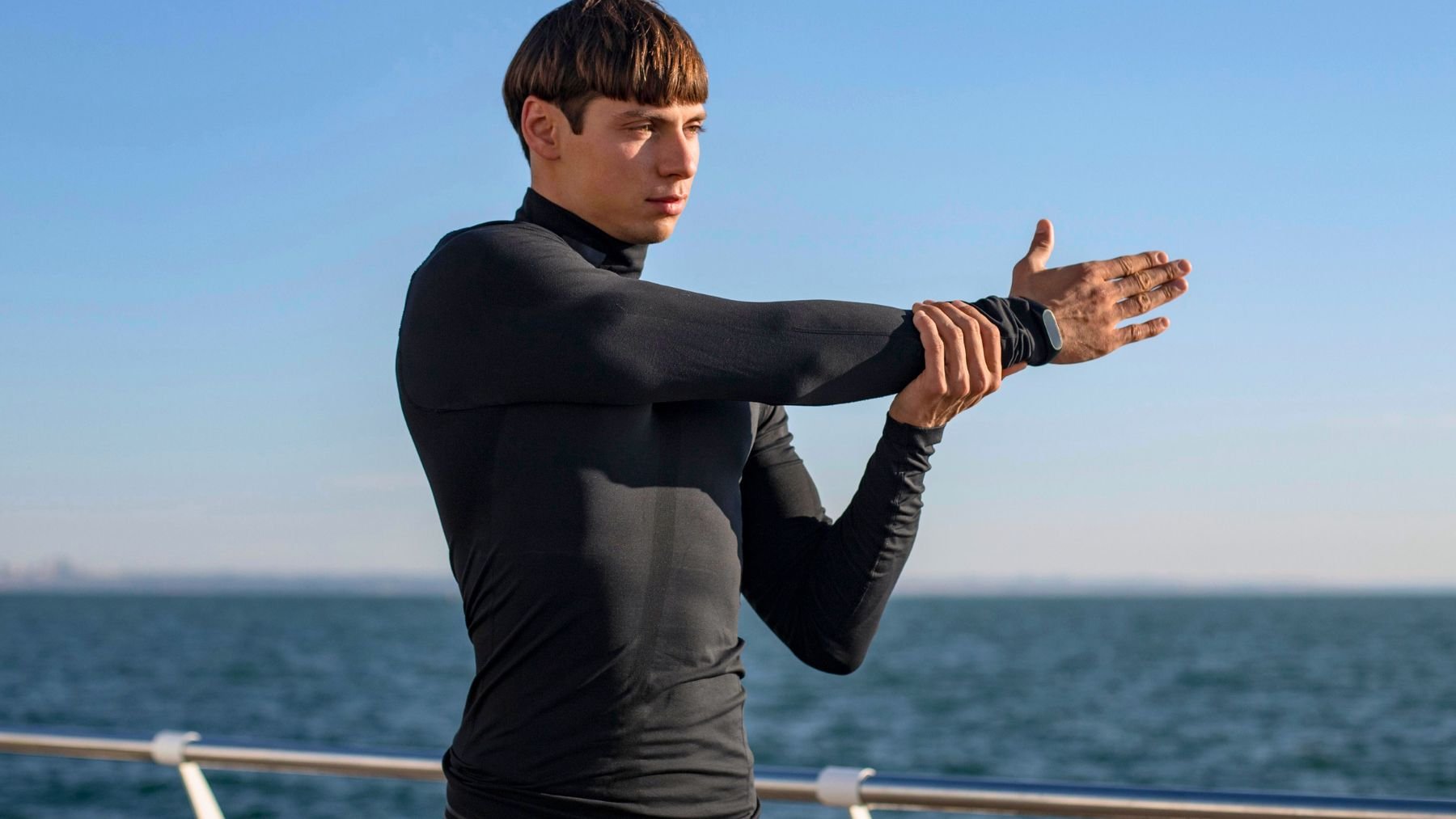Brian Valenza spent years waking up at 4:30 a.m. as a Navy SEAL. Now 48 and leading a security firm while co-hosting longevity retreats, he still keeps a disciplined morning, but one that looks different from his military days. His daily routine centers on recovery, exercise, and small habits he says help him stay strong as he gets older.
The veteran focuses on practices like intermittent fasting, open-water swimming, and early morning sunlight. He also relies on journaling, meditation, hydration with a pinch of sea salt, and coffee to start his day with energy and clarity. Here’s how he structures his mornings and why he believes these habits support long-term health and performance.
His morning routine
For Valenza, the day starts between 5 and 7:30 a.m.—later than his SEAL schedule, but still early by most standards. He now prioritizes a full night of sleep, often staying up later to spend time with his family. After waking, he begins with journaling or a short gratitude practice, sometimes paired with meditation. He says this helps him set the tone mentally before tackling work or training.
Sunlight is another cornerstone of his mornings. He makes a point of stepping outside early to expose his eyes and skin to natural light, which research shows can help regulate circadian rhythms, improve alertness, and boost mood.
Hydration follows. Valenza drinks water with a pinch of sea salt to replenish electrolytes and prepare his body for exercise. He then heads into the water himself. Swimming remains central for him, not only as part of his personal fitness but also as preparation for the Navy SEAL Foundation’s annual NYC SEAL Swim, a grueling open-water event in the Hudson River that mixes swimming with calisthenics to honor veterans.
Coffee marks the start of his workday around 8 a.m. From there, he breaks up office hours with stretches and movement to avoid long periods of sitting. His first meal doesn’t come until around noon, as he practices intermittent fasting, typically going 14 to 18 hours without food.
How can this routine impact longevity
Valenza’s approach reflects what many experts recommend for longevity. Prioritizing sleep gives the body time to recover and reduces long-term health risks. Morning sunlight helps regulate energy and sleep cycles. Low-impact exercise like swimming and walking strengthens the heart and muscles while limiting wear and tear.
Hydrating with water and electrolytes supports endurance and focus, especially when paired with regular training. Fasting may benefit metabolic health and reduce inflammation, which some studies suggest could contribute to a longer lifespan. Adding daily gratitude practices and meditation brings mental balance, lowering stress and improving resilience.
For Valenza, the biggest change over time has been shifting from high-intensity workouts to a mix of Zone 2 cardio, walking, and occasional VO2 max training. He admits that in his younger years, he pushed harder, trying to outdo younger athletes. Today, he says, the focus is on the “long game”, balancing fitness with recovery and social connection.
The consistency of his routine shows how small, steady habits can build into a lifestyle that supports both physical and mental health. By combining sunlight, exercise, fasting, and mindful practices, Valenza’s mornings are designed not just for performance now but for longevity in the years ahead.

